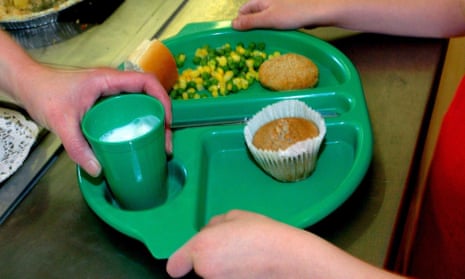Teachers have reported worsening signs of child poverty in their classrooms with pupils coming to school tired, hungry, angry and confused. Many children are wearing dirty and ill-fitting uniforms and suffering from anxiety and behaviour issues that affect their learning.
This alarming picture is revealed in a survey, by the National Education Union (NEU), of 8,600 school leaders, teachers and support staff. Nine out of 10 who took part agreed that poverty and low income were having a detrimental effect on their pupils’ education. Half felt that the situation had worsened over the last three years, particularly in primary schools.
The picture is even more depressing if independent education providers are discounted, with 97% of respondents in maintained schools, academies, free schools and further education colleges reporting concern that poverty affected their students’ learning. Over half (52%) said that the effect was large.
“The poverty gap has clearly got bigger,” said one respondent. “The number of students displaying difficult behaviours has increased and poverty is most certainly a factor.”
The survey was conducted by the NEU among its members, before the union’s annual general conference in Liverpool
Mary Bousted, joint general secretary of the union, said a decade of austerity had resulted in more children in poverty, while the support structures for poor families were being destroyed. “The government must stop blaming schools for the impact of its austerity policies upon the most vulnerable in our society, and take action to alleviate the suffering of the increasing numbers who are living in poverty,” she said.
School staff who contributed to the UK-wide survey described their efforts to support their neediest students. Many provided food and personal hygiene products; others did washing and paid for uniform items .
Many said that the funding crisis in England’s schools was making it harder to counter the effect of poverty on young people’s education. Some schools have had to get rid of breakfast clubs because of budget shortfalls, and some respondents described food banks as “an everyday necessity”. There were schools that helped families to buy washing machines, staff who spent their own earnings on socks, tights and underwear, and children who stayed off school on non-uniform days to avoid comments about their clothes.
“Dress-up days can be a very sad day,” said one respondent. “The rich children show off and those struggling with finances are really noticed by the other children, so they may decide not to attend school that day.”
Asked to identify the effects of poverty on learning, three out of four respondents said they saw children suffering from fatigue (78%), poor concentration (76%) or poor behaviour (75%); more than half said their students had experienced hunger (57%) or ill-health (50%) as a result of poverty, and more than a third (35%) said students had been bullied.
Many of the affected children had parents in low-paid jobs who were unable to afford food and basic equipment. Children who were unwell were brought to school because their parents had zero-hours contracts and could not afford to lose pay. Respondents worried about “latchkey” children whose parents were holding down multiple jobs. “Some students have mentioned that they have not had any food for two days, some come without having breakfast and with no dinner money but are not on free school meals,” said one respondent. “I try to teach my phonics group as I am giving others cereal to eat,” said another.
The survey also highlighted the shame suffered by poor children and their parents. “Some children will try and avoid coming in for packed lunch by hiding in the toilet because they feel awkward about their meal. Parents feel inadequate because they can’t feed their own children, but they work so they get no additional help.”
Other respondents described the effect of overcrowding at home, no space to do homework and poor sleep patterns, which left pupils struggling to concentrate and falling asleep in lessons. Children were anxious about their parents and suffered mental health problems. “They struggle to fit in and be a part of school life,” said another respondent.
Nadhim Zahawi, minister for children and families, said that tackling disadvantage was a priority for the government: “Employment is at a record high and wages are outstripping inflation, but we know some families need more help.
“While all infant children can benefit from our universal infant free-school-meals programme, we are making sure that more than a million of the most disadvantaged children are also accessing free school meals throughout their education – saving families around £400 per year.”







